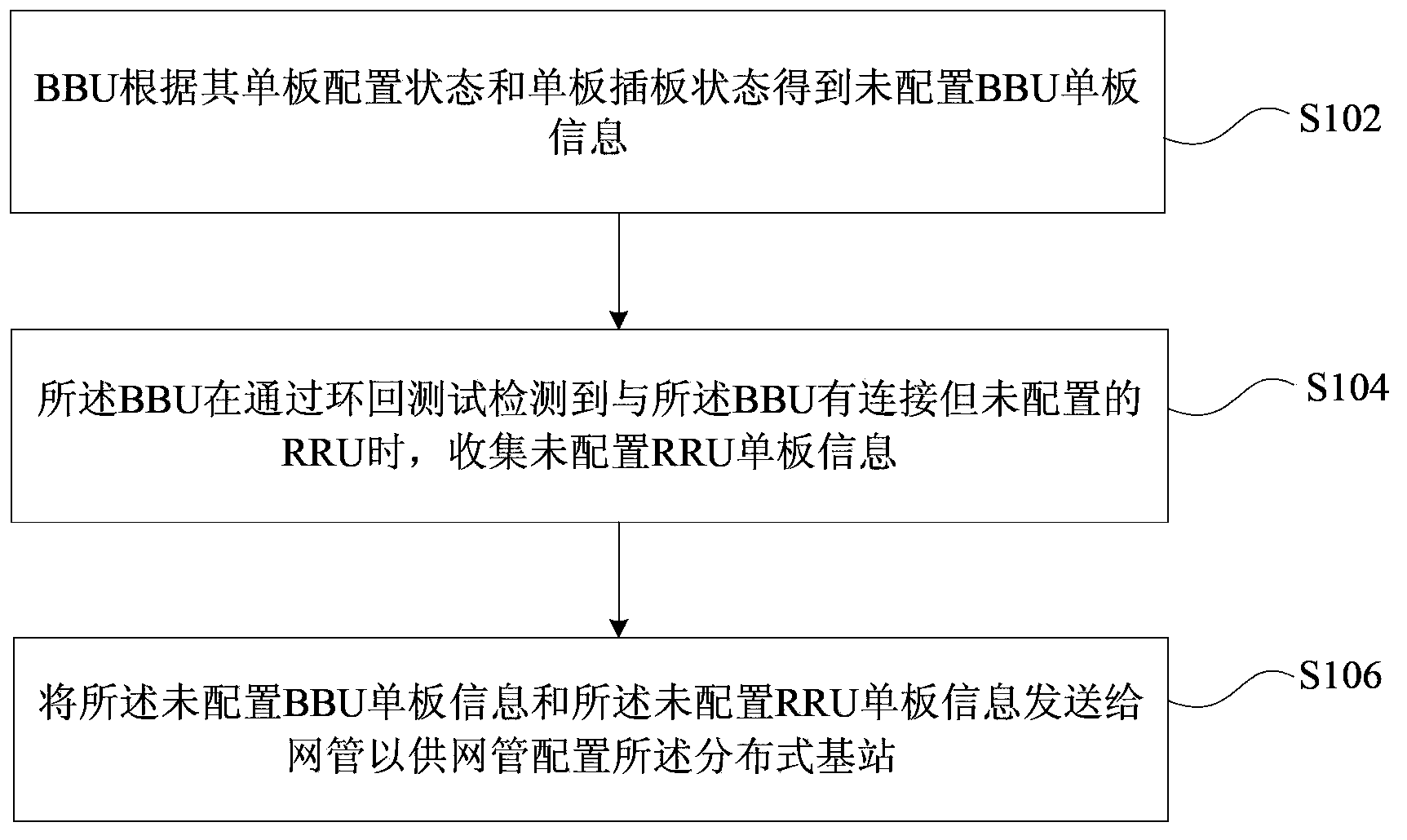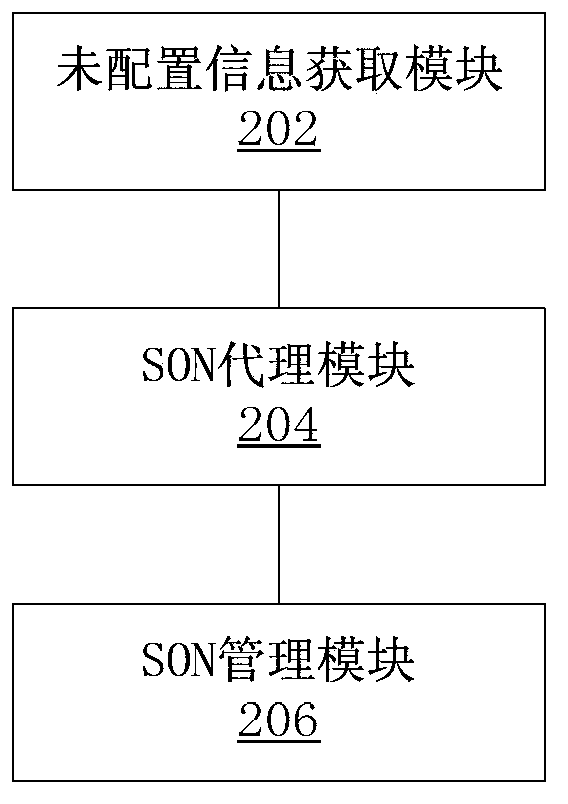Self-discovery method, device and system of distributed base station
A distributed base station and self-discovery technology, applied in the field of communication, can solve problems such as error-prone, manual input parameters cannot be guaranteed to be error-free, and parameter configuration is complicated, so as to reduce operating costs, improve operating efficiency and user experience, and reduce manual The effect of the intervention
- Summary
- Abstract
- Description
- Claims
- Application Information
AI Technical Summary
Problems solved by technology
Method used
Image
Examples
Embodiment 1
[0030] An embodiment of the present invention provides a self-discovery method for distributed base stations, figure 1 is a flow chart of a self-discovery method for a distributed base station according to Embodiment 1 of the present invention, such as figure 1 As shown, the method includes:
[0031] Step S102, the BBU obtains unconfigured BBU single board information according to its single board configuration state and single board insertion state;
[0032] Step S104, when the BBU detects an unconfigured RRU that is connected to the BBU through a loopback test, collects unconfigured RRU single board information;
[0033] Step S106, sending the unconfigured BBU board information and the unconfigured RRU board information to a network manager for the network manager to configure the distributed base station.
[0034] In the prior art, distributed base stations need to be manually configured, and the configuration process is complex, parameter configuration is cumbersome, and...
Embodiment 2
[0041] An embodiment of the present invention provides a self-discovery device for a distributed base station, figure 2 It is a schematic structural diagram of a self-discovery device of a distributed base station according to Embodiment 2 of the present invention, and the device is located in a BBU of a distributed base station. Such as figure 2 As shown, the device may include: an unconfigured information acquisition module 202 , a SON agent module 204 , and a SON management module 206 . This is explained below.
[0042] The unconfigured information acquisition module 202 is configured to obtain unconfigured BBU single board information according to the single board configuration status and single board insertion status of the BBU.
[0043] The SON proxy module 204 is configured to collect unconfigured RRU single board information when detecting an unconfigured RRU connected to the BBU through a loopback test.
[0044] The SON management module 206 is configured to send...
Embodiment 3
[0048] An embodiment of the present invention provides a distributed base station self-discovery system, image 3 is a schematic structural diagram of a self-discovery system of a distributed base station according to Embodiment 3 of the present invention, as shown in image 3 As shown, it includes a network manager 302, a BBU 304 and an RRU 306, where the BBU 304 and the RRU 306 are two components of a distributed base station. In this example:
[0049] The BBU 304, including the self-discovery device of the distributed base station described in Embodiment 2, is used to send unconfigured BBU single board information and unconfigured RRU single board information to the network manager 302;
[0050] The RRU 306 is configured to collect information about an unconfigured RRU board and report it to the BBU 304;
[0051] The network manager 302 is configured to configure the distributed base station according to the unconfigured BBU board information and the unconfigured RRU boar...
PUM
 Login to View More
Login to View More Abstract
Description
Claims
Application Information
 Login to View More
Login to View More - R&D
- Intellectual Property
- Life Sciences
- Materials
- Tech Scout
- Unparalleled Data Quality
- Higher Quality Content
- 60% Fewer Hallucinations
Browse by: Latest US Patents, China's latest patents, Technical Efficacy Thesaurus, Application Domain, Technology Topic, Popular Technical Reports.
© 2025 PatSnap. All rights reserved.Legal|Privacy policy|Modern Slavery Act Transparency Statement|Sitemap|About US| Contact US: help@patsnap.com



